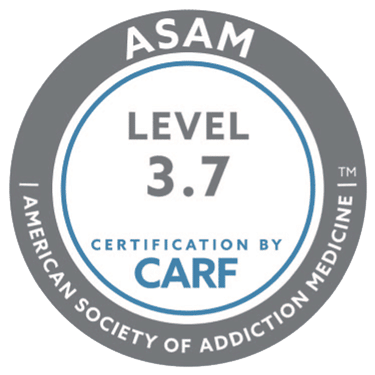Addiction is a complex and chronic disease that affects not only the person using drugs but also their loved ones. To deal with this problem, drug rehab centers play a critical role in addiction recovery by offering evidence-based treatments and therapies designed to address the physical, emotional, and psychological aspects of addiction.
One of the primary roles of drug rehab centers is to provide a safe and supportive environment for individuals to begin their recovery journey. In a rehab center, individuals can detox from drugs under medical supervision, receive counseling and therapy, and learn essential coping skills to maintain sobriety after leaving treatment.
Nowadays, many drug rehab centers also offer family therapy sessions and educational resources as a way to involve family members in the recovery process. These sessions can help family members learn more about addiction, develop communication skills, and identify ways to support their loved one in recovery.

Overview of Florida’s Drug Rehab Centers
Florida is home to a wide range of drug rehab centers that offer diverse treatment options and are dedicated to providing high-quality care. The state’s sunny climate and proximity to the ocean have made it a popular destination for individuals seeking addiction treatment.
According to the National Survey of Substance Abuse Treatment Services, Florida has more than 900 licensed substance abuse treatment facilities. Over time, the local government has prioritized development in this sector. It means that modern Florida’s drug rehab centers are well-equipped to provide high-quality care that is effective, evidence-based, and tailored to the individual needs of each patient.
Types of Drug Rehab Centers in Florida
Seeking rehab for drug addiction can be a crucial step toward recovery. Therefore, it’s important to understand the different options available to you. Generally, addiction treatment centers are divided into three categories: inpatient rehab facilities, outpatient rehab centers, and specialized treatment centers.
Inpatient Rehab Facilities
Inpatient rehab centers provide a highly structured and intensive treatment program, where patients live on-site for some time and receive around-the-clock care. These programs typically last for 30, 60, or 90 days and may involve a combination of individual and group therapy, medical detoxification, and holistic therapies. Despite these benefits, the drawbacks of inpatient rehab facilities usually include high costs, staying away from family and friends, and a feeling of isolation.
Outpatient Rehab Facilities
Outpatient rehab centers provide treatment on a part-time basis, where patients attend therapy sessions and other treatments during the day and return home at night. This type of rehab can be a good option for those who have already completed an inpatient program or for those who have a less severe addiction. While these health institutions offer flexibility, they may not offer 24-hour support and access to certain medical services.
Specialized Treatment Centers
Florida is also home to specialized treatment centers that focus on specific types of addiction or demographics. Examples of such drug rehab include faith-based rehab institutions, luxury rehab centers, dual diagnosis treatment centers, LGBT-friendly treatment centers, and holistic treatment centers. The drawbacks of specialized treatment centers may include limited availability in certain locations, the potential for higher costs, and a narrow focus on specific types of addiction or demographics.
Treatment Approaches and Therapies
Drug addiction is a complex and multifaceted condition that requires a variety of treatment approaches and therapies for successful recovery. Here’s a brief overview of the type of treatment you can expect from drug rehab:
Evidence-based Treatments
Evidence-based treatments are scientifically tested and proven effective in treating addiction. Cognitive-behavioral therapy (CBT), dialectical behavior therapy (DBT), and motivational interviewing are three examples of evidence-based treatments commonly used in drug rehab programs.
CBT is a talk therapy that helps individuals identify and change negative thought patterns and behaviors related to addiction. DBT is another option, which emphasizes the development of emotional management and interpersonal skills. Meanwhile, motivational interviewing is a bit different from the aforementioned approaches, as it helps individuals explore their reasons for wanting to change and create a personalized plan for success.
Alternative Therapies
Alternative therapies, such as art, music therapy, equine therapy, yoga, and meditation, can also play an important role in addiction recovery. These therapies provide individuals with new ways to express themselves, reduce stress, and cope with difficult emotions.
In Florida, alternative therapies are often used in conjunction with evidence-based treatments and medication-assisted treatment to offer a comprehensive approach to addiction recovery. Together, the multi-therapy approach can provide individuals with a range of tools to support their journey toward long-term recovery.
Medication-assisted Treatment
MAT involves the use of medications, such as methadone, buprenorphine, and naltrexone. It helps individuals manage withdrawal symptoms, reduce cravings, and prevent relapse. When used appropriately and under the guidance of a medical professional, medications like methadone, buprenorphine, and naltrexone can significantly reduce withdrawal symptoms and cravings, ultimately making it easier for individuals to focus on their recovery.
While medication-assisted treatment can be a useful tool in addiction recovery, it’s also not a standalone treatment approach. Accordingly, MAT should be used in combination with other therapies, such as counseling and behavioral therapies, to support a comprehensive and personalized recovery plan.
Florida Drug Rehab Center Accreditation and Licensing
If you’re seeking addiction treatment in Florida, it’s important to do your research and find a rehab center that meets certain standards for quality care. One key aspect to consider is accreditation and licensing. Here are the key licensing authorities in Florida:
The Joint Commission: This is one of the most well-known accrediting organizations in the healthcare industry. It evaluates and certifies healthcare organizations, including drug rehab centers, to ensure they meet certain quality standards.
CARF International: CARF focuses on behavioral health and rehabilitation services. It provides accreditation to drug rehab centers that meet a specific standard for quality care.
Florida Department of Children and Families (DCF): In Florida, drug rehab centers are required to be licensed and regulated by the DCF. The department ensures that therapy centers meet certain quality standards and are providing appropriate care to patients.
By choosing a drug rehab center in Florida that is accredited by organizations like The Joint Commission or CARF International and licensed by the DCF, you can feel confident that you’re receiving high-quality care that meets the required safety and quality standards.
How to Choose the Right Drug Rehab Center in Florida
If you or a loved one is struggling with addiction, here are some factors to consider when selecting a rehab center that meets your needs:
- Start your search by selecting a rehab center based on the level of care required. This is done by choosing the type of treatment center such as inpatient, outpatient, or intensive outpatient treatment.
- After the selection, determine what location and facility features are most important. In this phase, you can evaluate the proximity of the center to your home, access to certain amenities, and specific treatment approaches.
- After you’ve shortlisted a couple of rehab centers, ask them about the rehab center’s success rates and outcomes, such as relapse rates, patient satisfaction, and length of sobriety. This will give you a better idea of the center’s effectiveness in helping patients achieve lasting recovery.
- Before making a final decision, pay attention to the financial coverage and payment options. Check whether the rehab center accepts your insurance and whether they offer payment plans or financing options.
- To ease the financial burden, seek scholarships and sliding scale fees. Some rehab centers may offer scholarships or sliding scale fees based on income to make treatment more affordable. Inquire about these options if you’re struggling to afford the cost of treatment.
Resources for Finding Florida Drug Rehab Centers
Online Directories and Databases
SAMHSA Treatment Locator: It’s a searchable directory of drug and alcohol treatment programs across the country, including Florida. You can search by location, type of treatment, and payment options.
Florida DCF’s Substance Abuse Treatment Services Locator: This directory is specifically for Florida and includes information on publicly-funded treatment options.
The National Institute on Drug Abuse: The organization provides a comprehensive directory of drug and alcohol treatment programs in the United States. You can search by location and type of treatment.
Community Resources and Referrals
Healthcare Providers: Your primary care physician or a mental health professional may be able to provide referrals to local drug rehab centers.
Support Groups and Local Organizations: Groups like Alcoholics Anonymous and Narcotics Anonymous can be great resources for finding drug rehab centers in your area.
Local Health Department: The Florida Department of Health provides a list of county health departments in the state, which can be a good resource for finding local treatment options and referrals.
Why Florida
Florida has a warm and sunny climate, which can be beneficial for people recovering from addiction. It’s a well-known fact that sunlight can help boost mood and increase vitamin D levels that help with depression and anxiety. Apart from its wonderful climate, the state has a large recovery community, which can also provide support and encouragement to those in recovery.
Remember, seeking help for addiction can be a challenging decision, but with the right support, environment, and resources, individuals can quickly embark on the journey toward recovery and a better quality of life.







